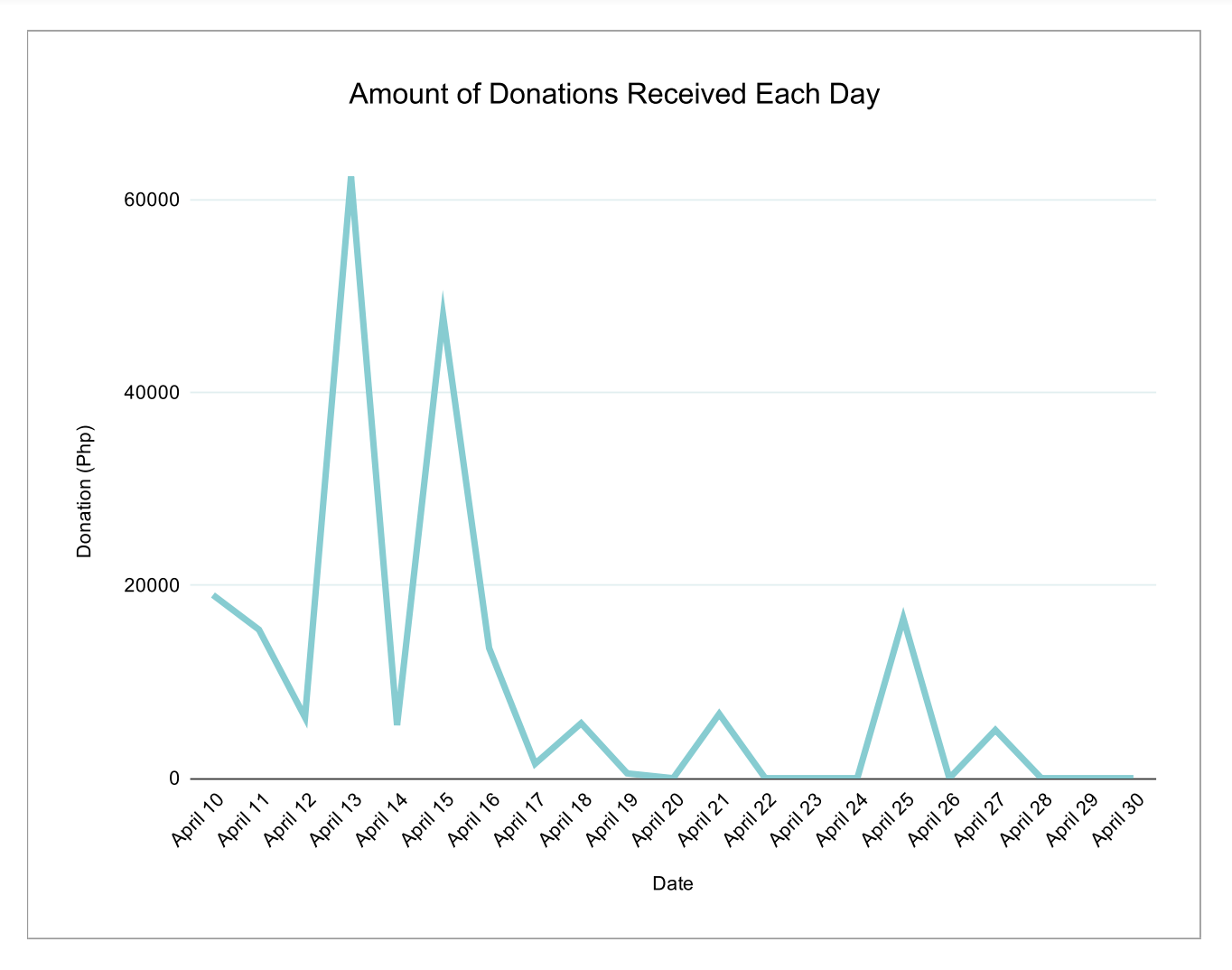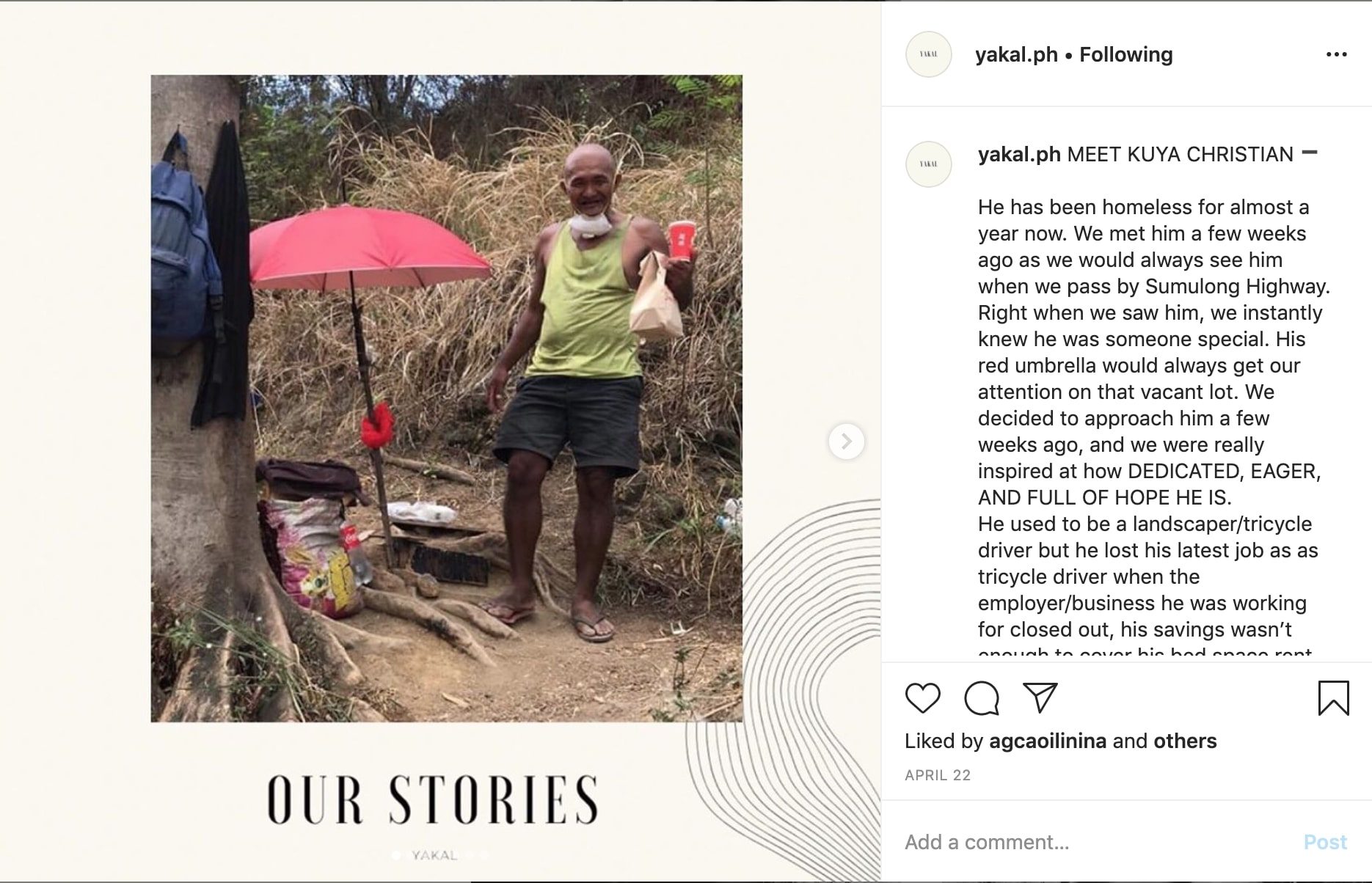SUMMARY
This is AI generated summarization, which may have errors. For context, always refer to the full article.

MANILA, Philippines – A business process outsourcing (BPO) employee, Jed Rosario sighed in exasperation at home as he struggled to get his internet connection working. If he isn’t able to take calls soon, he won’t receive pay for the day.
His frustration was compounded by how he had budgeted some of his incoming salary to donate to his local church’s drive. His pay isn’t much, but he knew that there were millions of other Filipinos who won’t be getting their salaries like him. It was the end of April, and the coronavirus lockdown was due for another extension.
Pay day came, and 3 days of no internet reflected as deductions on his payroll. (READ: Double whammy: BPO employees get exposed to COVID-19, lose income)
“Honestly, it’s kind of frustrating because I know I can give a lot more. Tapos ‘yung current state pa ng country now medyo nakakatakot (And the current state of the country scares me), so I have no choice but to hold back the debit in case of emergencies,” said Jed.
Even with several government cash assistance programs in place for the poor and vulnerable, such as from the Department of Social Welfare and Development (DSWD), the Department of Labor and Employment (DOLE), and the Department of Agriculture (DA), eligibility remains a blessing.
Presidential Spokesperson Harry Roque said so himself that even if 5 million families were added to the emergency subsidy program (ESP), there will always be more that would appeal.
For families left behind, various donation drives run by non-governmental organizations (NGOs), businesses, and even small groups of friends have sprouted throughout the coronavirus pandemic, allowing ordinary citizens to help.
But with everyone affected by an outbreak that has no end in sight, and the government scrambling to find more funds to mend an almost frozen economy, what happens when even good samaritans can’t help anymore?
Aiding those left behind
College freshman Charisse Reganion received a message from her former teacher that some staff members in her high school, Philippine Science High School (Pisay), needed help amid the lockdown. Together with 5 of her friends, they launched their project Ayuda Para sa Agham Road (Ayuda) on April 10.
Donations came pouring in during the first week. Charisse’ group also decided to include the neighboring Sitio San Roque residents who rallied for food on April 1 as their beneficiaries. By only the 6th day, the group had raised around P169,000 for the communities.
P50,000 was allotted for the San Roque residents, which was stored in a PayPal account. Charisse said the money has not reached the residents yet, but noted in amusement that PayPal raised flags of suspicion after receiving such a generous donation in a brand new account.
The trend of aggressive donations, however, went down from there.
The 66 Pisay staff included in Ayuda consisted of paid and unpaid employees. While some still received salaries from the school, others – like cafeteria workers and guards – are subcontracted from different entities and therefore have no source of income.
Only two out of the 66 employees qualified for the DSWD’s emergency subsidy program, Charisse said. With most depending on Ayuda, the beneficiaries created a group chat with the project members to send videos and photos of gratitude.
“We can’t just stop just because people stopped donating. That’s just a signal for us to work more,” said Charisse.
Dealing with limitations
While Charisse has 5 of her friends managing Ayuda with her, project Yakal.ph is run by Niña Agcaoili all on her own. Niña takes care of everything – from promotions, to logistics, to buying and delivering relief goods, down to accounting.
Unlike Ayuda, Yakal was not created precisely for the coronavirus outbreak. Starting a non-profit to aid and empower the poor had always been just a dream for Niña, but she realized that there was no better time to start it than now. It did not matter to her that the lockdown had already lapsed a month before Yakal began.
Niña’s initial efforts consisted of simply asking donations from her friends, who then shared the initiative with their circles. She raised P12,600 for the first wave of donations – enough to buy 42 relief packs to distribute to homeless people in Antipolo.
Yakal was nowhere near the hundreds of thousands of pesos collected by the likes of Ayuda. Niña could not help but compare the impact of her efforts to others, especially as Yakal experienced donor fatigue as well. From 3 to 4 people donating in just a day, donors reached out just once a week, and then they faded to none at all.
Although Niña is a volunteer, she shells out some of her own personal funds to meet Yakal’s goals, too. For Yakal’s next project on sponsoring a bedspace and finding a job for “Kuya Christian,” she needs P4,000 to meet the goal. While she has the balance in her bank account, she cannot bring herself to fill it up. Like Jed, Niña struggles with the limitations of what she can give due to the pandemic.
“Ang dami kong nakikita na gusto kong tulungan, pero wala akong budget ngayon para i-donate, kahit gusto ko. Kasi meron din tayong pinanggagastusan, at hindi naman ‘yan bad thing. As much as we want to donate, ‘di naman natin obligation na akuin lahat. Hanggang dito lang ‘yung kaya eh,” she said.
(I still see a lot more people I want to help, but I don’t have the budget now to donate, even if I want to. We all have expenses we need to take care of too, and that’s not a bad thing. As much as we want to donate, it’s not our obligation to take care of everything. This is all we can afford.)

Complementing, not competing
Jed said part of the reason why he chooses to donate despite his limited pocket money is because of the “lacking” response of the government.
“The way the government handled the pandemic, and their lack of preparation made it a nightmare for Filipinos. It made me want to donate more kasi if the government isn’t going to do anything about it, might as well tayo na lang magtulungan (help each other instead),” he said.
As of May 23, the DSWD has served 17.5 million families out of 23 million of its target under its 2-month ESP. The directive from President Rodrigo Duterte on the distribution of the second tranche was released only on May 23.
At least 42 village officials are facing criminal complaints for allegedly committing anomalies in the cash aid program, according to the Department of the Interior and Local Government. (READ: IN LIMBO: Poor families still await subsidies during coronavirus lockdown)
But hard feelings toward the government isn’t the style of 2KK Tulong sa Kapwa Kapatid Foundation. For 2KK, it is collaboration with the government that will ensure there is aid reaching families left behind.
2KK does not normally believe in just donations when it comes to helping the underprivileged. They champion sustainability – that charity must always be accompanied with forming children through education and leadership.
But the pandemic challenged their principles. Regular donations were what their communities needed at the moment, so they adapted.
With a virus on the loose, it wasn’t as simple as volunteers going to the communities on the ground. But because of 2KK’s strong relationships with community leaders in Smokey Mountain, Payatas, and Sampaloc, the logistics of the drive were barely a problem.
24-year-old Lesther Pangilinan’s education was shouldered by 2KK from kindergarten until he graduated with a physics degree at the Polytechnic University of the Philippines in 2018. The scholar remained in touch with 2KK as he became Sangguniang Kabataan chairman of Barangay Payatas in Quezon City.
Of the estimated 60,000 poor families in Payatas, only 16,000 social amelioration cards were provided by the DSWD, Lesther said. Complaints were too many to count, and at one point, physical distancing went down the drain as appealing families flooded the barangay hall.
While the residents of Payatas at least had the city’s supplemental cash aid program ongoing, Lesther fondly acknowledges 2KK’s huge help extended to communities the government is unable to reach.
“Hindi sabay-sabay nabibigyan weekly sa sobrang laki ng Payatas. Mayroong mga lugar na medyo napapag-iwanan. So malaking tulong ang 2KK sa pagpuno doon sa mga napag-iwanan habang hinihintay nila ang ayuda sa gobyerno,” said Lesther.
(Not all families are given aid at the same time weekly because of how big Payatas is. There are places that will be left behind. So it is a big help from 2KK to fill in the gaps of families still waiting for aid from the government.)
Niña sees the same benefits of public and private relief complementary efforts when it comes to reaching more people in need. “Tingin ko necessary talaga ang non-profit orgs, kasi in reality the government can’t cover everyone. ‘Di talaga mangyayari ‘yun kahit bali-baliktarin mo ang mundo. Maganda ‘yung magtulungan na lang tayo to help those ignored at nalalagpasan,” she said.
(I think non-profit organizations are really necessary, because in reality, the government can’t cover everyone. That really won’t happen even if you turn the world upside down. It’s better if we just help each other to help those ignored and left behind.)

Revitalizing donor fatigue
2KK, as a 17-year-old organization, has been able to solidify relationships with partner organizations and generous individuals who trust the foundation enough to constantly donate. If not for them, 2KK on its own would have experienced donor fatigue as well, said core volunteers Kring Santos and Chelsea Sullivan. As of May 16, they have raised a total P2.8 million for their beneficiaries.
Their advice for campaigns experiencing donor fatigue? Keep people excited to donate – one way through effective marketing.
One of 2KK’s platforms is Lazada, where donors can “adopt” a family or community. For P1,000, a donor can sponsor 25 meals. For P6,000, someone could support a community of 150 people for a day. Donors can even choose to donate just P1 to contribute to a meal. It counts, Kring and Chelsea said.
For Charisse, it’s being transparent with donors that may help bring a second or third contribution.
“The donors should see the [effects of the] good they are doing. We let the donors know how thankful the beneficiaries are by posting screenshots of the group chats with them expressing gratitude, while of course censoring names and faces for their privacy,” she said.
But as everyone struggles with the pandemic, sometimes it could be enough to pass the message.
“If ever walang-wala na, pero gusto niyo pa din, may other ways para tumulong like message mo friend mo, suggest na i-convert na lang handa ng birthday sa pagbigay ng goods. Mag-disseminate ng information at maghikayat ng kapwa na mag-donate. Magandang tulong na yun,” said Lesther.
(If you’re down to nothing, there are other ways to help like messaging your friend – suggest to convert their birthday blowout to relief goods. Disseminate information and encourage others to donate. That is already good help.) – Rappler.com
TOP PHOTO: UNWAVERING. Niña Agcaoili of Yakal.ph, and Payatas SK Chairman Lesther Pangilinan together with a 2KK volunteer give out relief goods to vulnerable families. Photos courtesy of Agcaoili and Pangilinan
Here’s how you can donate to Yakal, Ayuda Para sa Agham Road, and 2KK:
- BDO: Niña Erica Ysabel V. Agcaoili – 0054 4024 4043
- GCash: 0966 843 3668
- BPI: Luis Carmelo Ramirez – 9749 2269 75
- Landbank: Sean Patrick Abiera – 1467 0820 07
- GCash: Criselda Charisse Reganion- 0999 102 4560
- PayPal
- GoGetFunding
- Lazada
- Shopee Bayanihan
- Paymongo (Visa, Mastercard, GCash, GrabPay)
Add a comment
How does this make you feel?
There are no comments yet. Add your comment to start the conversation.